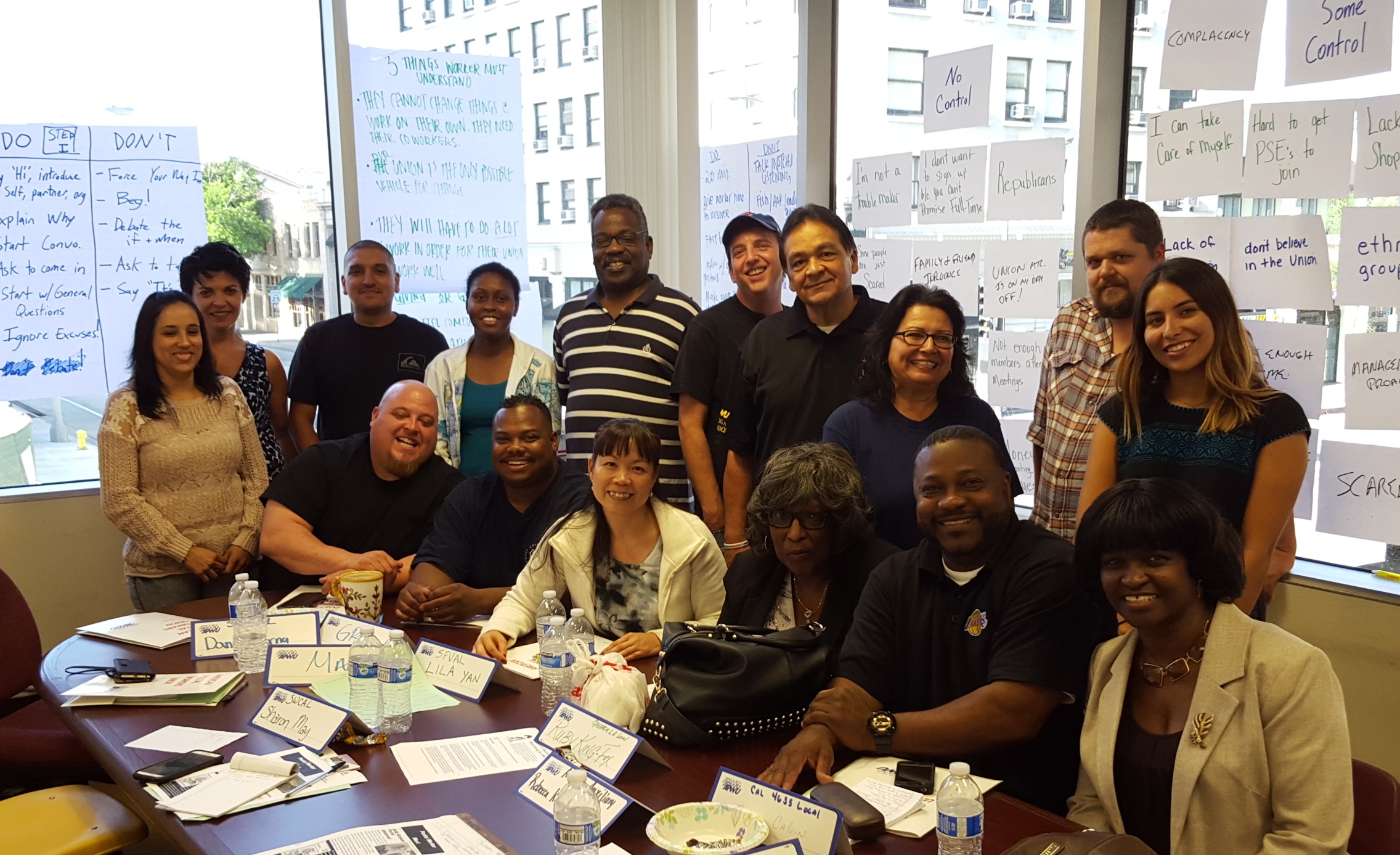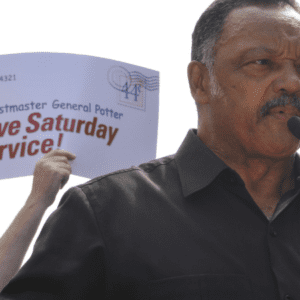November 1, 2015
Door-to-Door Organizing

Eddie Calvin, and Patricia Williams. Back: Anna Smith, Danny Serna, Maria Servantes,
Phil Warlick, Brian Dunsmore, Omar Gonzalez, Tish Ochoa, Justin McBride, and Claudia Magaña.
(This article first appeared in the November/December 2015 issue of The American Postal Worker magazine.)
Local and state organizations across the country signed up more than 11,000 new members as of September 2015 – just short of doubling what we accomplished over the same period last year.
Organizing requires one-on-one communication, having a strategy, and taking action.
One effort was unique: After an intense two-day training seminar, organizers, retirees and auxiliary members from California hit the streets, visiting non-members at their homes. Taking part were: Southwest Coastal Area Local, California Area Local, San Fernando Valley Area Local, Greater Los Angeles Area Local, Pasadena Local, and the California Postal Workers Union. We collaborated with and learned from two AFL-CIO Organizers, Justin McBride and Claudia Magaña, who equipped us with organizing techniques that were new to the APWU.
Organizers knocked on 217 doors, signed up eight new members, and completed follow-up assessments for at least 13 non-members who remained undecided.
What’s Within Our Control?
Participants began the training by listing the obstacles we face and dividing them into two categories: things we can control and those we have little or no control over.
What we found was surprising: A lot of the obstacles are within our control. They include: people not knowing their rights, not knowing their stewards, thinking the union doesn’t do anything, lack of information, bureaucracy, politics, feeling their voices don’t matter, lack of money for organizing, misinformation, lack of union activity – including social activities, lack of support, complacency, management intimidation, too few shop stewards, doubts about what we can accomplish, lack of trust, the poor reputation of unions, lack of time, lack of training, and the influence of non-members.
While we may not have total control over these issues, we have some influence – particularly in fighting misinformation. We must refute the lies and explain how crucial unions are, have been, and will continue to be for the working class in America.
Experience teaches us that people generally want to be needed – and for the most part enjoy helping others. Being part of the union can serve both purposes, but getting members actively involved is essential.
Being a leader isn’t about power – it’s about motivating others to be active, giving direction, and helping them succeed. Leaders must point members toward solidarity and empower them to help make our union great.
Participants Speak Out
“I believe this training can be instituted in locals across the country to increase our membership participation and percentages nationwide.”
– Ruby King-Fox, Greater Los Angeles Area Local
“I found it very exciting and helpful to go out on the street to non-members…I was a bit apprehensive about whether or not I would be able to get a dialogue going. After the first visit, I was able to feel like, ‘I could do this.’”
– Rebecca Kingsley, APWU Auxiliary, District 2



